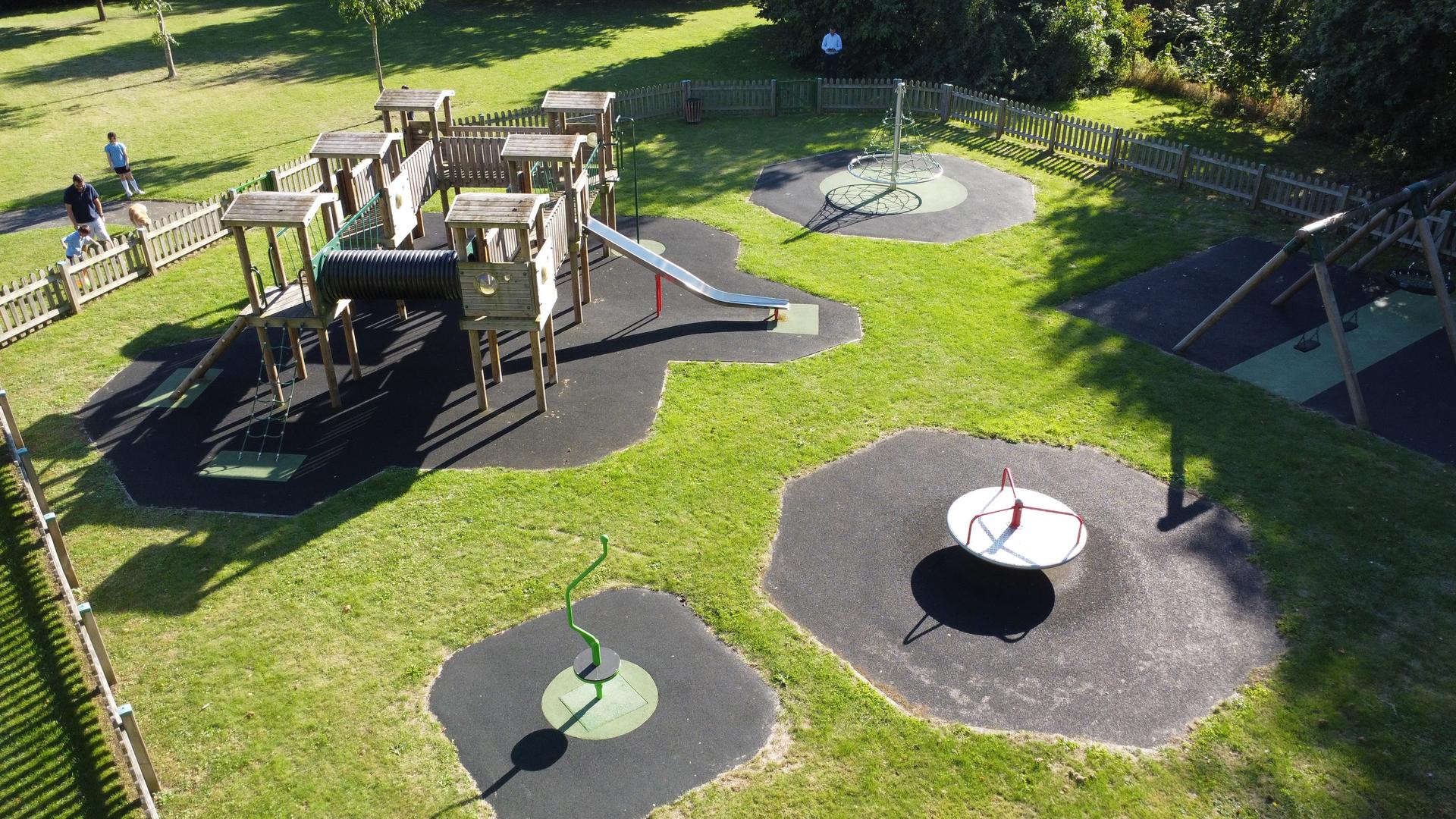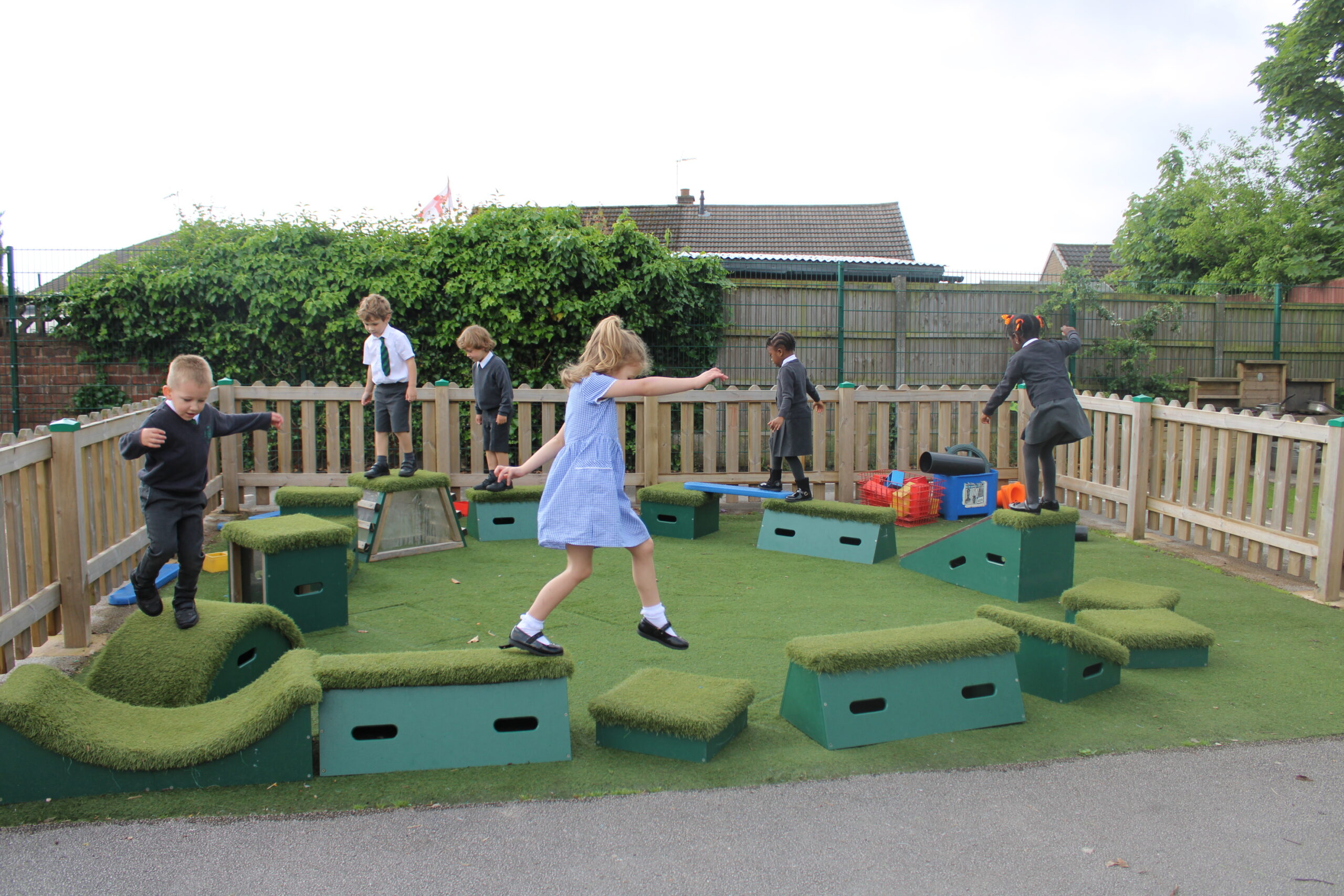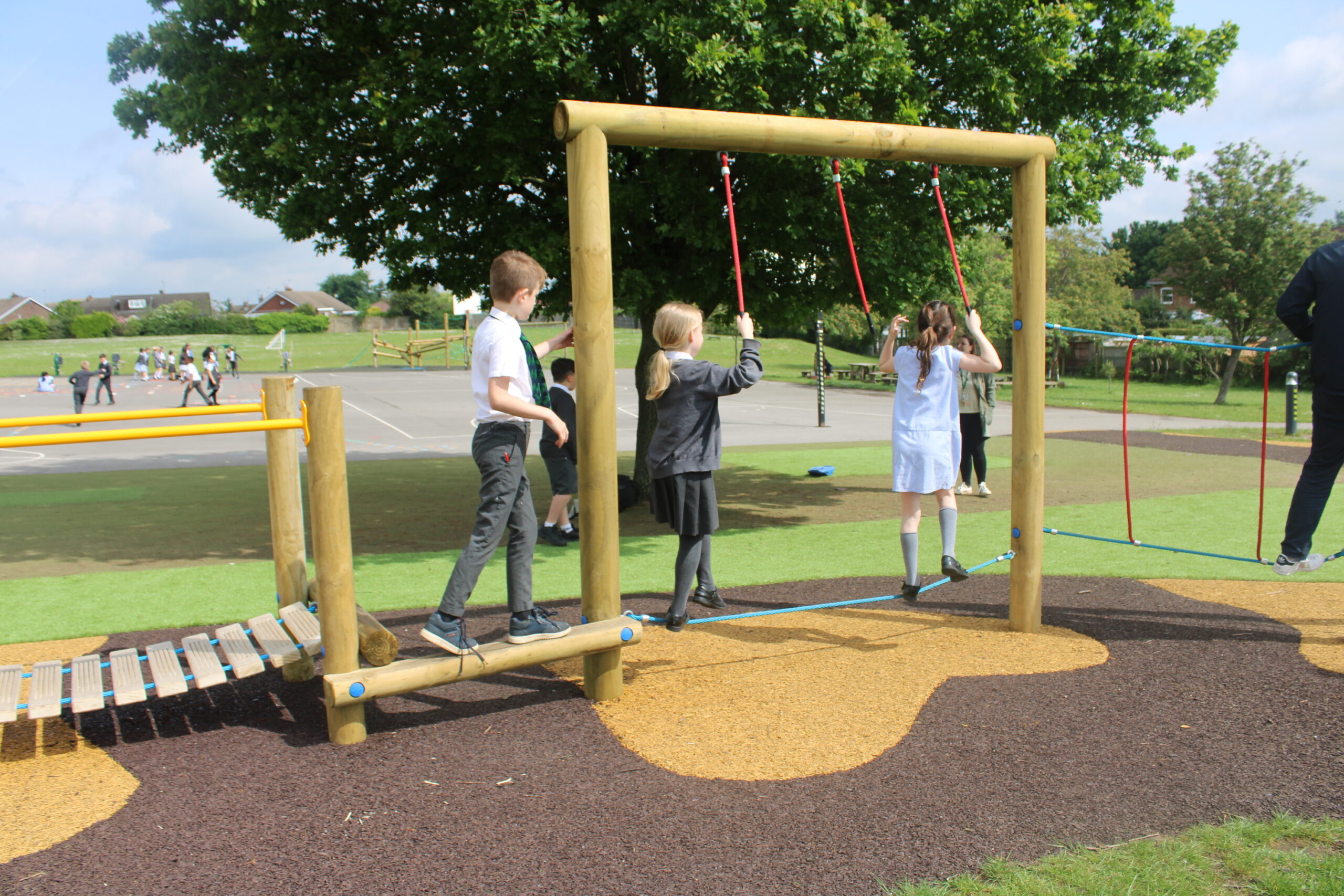
Learn More About...


Who are Fawns?
We're the longest-established school playground equipment provider around - we know a thing or two about playground design.
With family-ran roots, schools, MATs, nurseries and parish councils trust us to create outdoor playgrounds with a purpose.
How does play support social development?
Developing various skills such as social, cognitive, and gross/fine motor are an important part of a child’s early development. It promotes healthy child development and growth into a young adult.
Social development starts from an early age, beginning with smiling, cooing and imitations as a baby. As children grow, social development evolves to sharing, turn taking and the ability to follow established rules. These encourage the ability to interact with others, learn about themselves as well as others. It also allows children to start regulating emotions and behaviour.
What are the stages of play?
Play encourages young children to express their feelings and learn to cope with various emotions, relationships, and social interaction.
During the early years in a child’s development, they go through around 6 stages of play: Unoccupied Play, Solitary Play, Onlooker Play, Parallel Play, Associative Play and finally Social Play. These stages all involve various experiences which set them up for different situations in later life.
The breakdown of the different stages of play are in explained in the image below:

Research suggests, babies and children need social interactions from birth, children begin to socialise from around three or four years of age. This is really where children learn and practice their social skills, like cooperating, being flexible and taking turns.
What social skills do children learn through play?
Children develop several new skills through social situations some of which are co-operation, sharing & turn taking, communication & language and problem solving:
Co-Operation
Co-operation involves children playing together to solve problems to achieve a shared result. As cooperative play doesn’t involve a winner or a loser there is no competition between each other, and children can use their social skills to work with  each other.
each other.
Sharing and Turn Taking
Sharing and Turn Taking encourages young children to consider fairness in play and begin to think about compromising. As children play, turn taking and sharing allows them to learn how to manage their emotions and encourages them to consider how other children feel. It also encourages them to follow established rules.
Play allows young children to interact within social situations think about others around them, including taking turns, sharing toys and share ideas. Sequentially these help develop strong social skills.
To find out more about sharing and turn taking read our blog ‘seven inclusive play activities to promote sharing and turn taking’.

Communication and Language
Communication and Language are crucial social skills to be learnt during early childhood development. As young children begin to understand their environments strong language skills allow them to communicate basic needs and feelings. In turn developing social relationships and furthering emotional development.
Good communication and language skills play an important role in aiding the ability to solve problems and social conflicts as older children.
Through play communication & language is also promoted by interacting with others and pushes children to express themselves. Additionally play encourages children to use the appropriate language, boosting their vocabulary.

Problem Solving
Problem Solving is another important social skill learnt through play. The stimulation of the brain activity through play enhances children’s critical thinking.
As covered in ‘Outdoor Play; Why is it Important’ studies have shown that the frontal cortex of the brain is activated during play, which is responsible for controlling emotions and solving problems.
Imagination, which children tend to use during either during solitary play or with other children, promotes the ability to problem solve and develop critical thinking.
What playground equipment helps with social development?
Our extensive range of equipment support several aspects of social development and provide challenge for a wide range of ages and abilities:
Trim Trails
Our Trim Trail range has a variety of difficulty, size, and level of challenge; making them suitable for a wide range of ages and abilities. Our trails encourage children to work together to solve problems, take turns and successfully communicate. Above all supporting grip & grasp, physical development and upper body and core strength.
For example our Pennine Path Trail has a variety of components that encourage children to work together including the Log Traverse and the Rope Weaver Crossing, resulting in communication and language being boosted and range of vocabulary increased.

Our Reflex Heath Trek Fitness Trail is also brilliant for supporting young children develop their all-important social skills. It involves co-operation in getting around the trail as quickly as possible and encourages children to work together.
Messy Play
Our Messy Kitchen range encourages role play which in turn develops sharing, turn taking and co-operation.
Listening and team-work skills are developed in a messy play environment which facilitates children learn to share, take turns, and follow instructions. Using their imagination is not only fun for children, but also developing their language skills which are broadened as they describe what they are making.
Our Messy Kitchen Range includes the Messy Kitchen Corner, Workstation and Messy Corner.
Space Frames
The Space Frame range is designed to increase agility, balance, and hand eye co-ordination. These play structures also develop upper body and core strength and enhance communication and language.
 For example, our Cassini Space Frame and Voyager Space Frame have a variety of components including Drop Rope Traverse, Pathfinder Traverse Wall and Clatter Bridge. Children need to work out how to get across quickly and carefully; this could also be time sensitive due to others waiting.
For example, our Cassini Space Frame and Voyager Space Frame have a variety of components including Drop Rope Traverse, Pathfinder Traverse Wall and Clatter Bridge. Children need to work out how to get across quickly and carefully; this could also be time sensitive due to others waiting.
Water & Sand Play
Our Sand & Water play ranges are excellent for fun sensory development. They boost children’s all important social skills including co-operation, turn taking and communication & language. 
Playing with sand and water equipment will help develop a range of vocabulary which is advanced through description of their senses; seeing, hearing, feeling, smelling, and tasting (hopefully not too much of this sense!). Use of imagination also increases children’s vocabulary.
Our water play tunnel promotes co-operation and sharing as well as communication. Alternatively the Sandy Lodge encourages children to work together to move the sand from the pit into the bucket, which in turn begins to develop their vocabulary, negotiation skills and solving problems.
Physical Development Blocks
Last but not least our Physical Development Blocks promote a range of skills including gross motor skills, balance, co-ordination and upper body strength. They support variety of social skills such as problem solving as the children need to work out where to place the blocks.
Communication & Language is encouraged as the children work together to create their own block trails or role play spaces. Similarly they involve co-operation and sharing, and subsequently boosts their vocabulary.
The Physical Development Blocks engage many children at one time and encourage them to share ideas: working on those all-important social relationships.

How can you raise money for your playground?
There are several ways to raise money for your playground, including PTA fundraising, cake sales, Christmas Fairs, Summer Fairs. However, these can take a little while to get to the desired funds. There are many funding programmes available that should be considered when thinking about grants for your school, some of which include Awards for All, Sport England and OneStop Carriers for Cause.
Contact our helpful team today on to find out more about funding you could be eligible for. You can also request a brochure to find out more about our product range!
If you would like to speak to someone about your playground project, call 01252 515199 and we will be happy to help.
Other Blogs you may be interested in!
https://www.fawns.co.uk/post/getting-active-small-playground-ideas-for-schools
https://www.fawns.co.uk/post/age-appropriate-playground-games-for-your-outdoor-play-equipment
https://www.fawns.co.uk/post/making-the-most-of-playtime-how-to-engage-send-children-in-outdoor-play

Who are Fawns?
We're the longest-established school playground equipment provider around - we know a thing or two about playground design.
With family-ran roots, schools, MATs, nurseries and parish councils trust us to create outdoor playgrounds with a purpose.


Other Blog Posts


© Playtime By Fawns | 2026 website developed & maintained by digidoda
This site is protected by reCAPTCHA and the Google Privacy Policy and Terms of Service apply.





